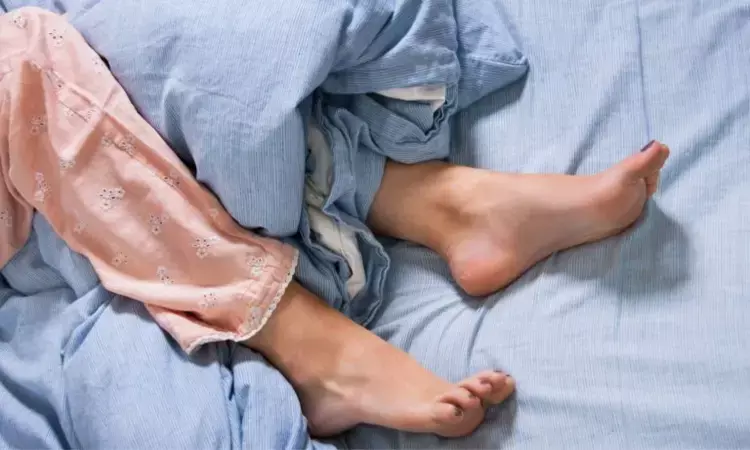- Home
- Medical news & Guidelines
- Anesthesiology
- Cardiology and CTVS
- Critical Care
- Dentistry
- Dermatology
- Diabetes and Endocrinology
- ENT
- Gastroenterology
- Medicine
- Nephrology
- Neurology
- Obstretics-Gynaecology
- Oncology
- Ophthalmology
- Orthopaedics
- Pediatrics-Neonatology
- Psychiatry
- Pulmonology
- Radiology
- Surgery
- Urology
- Laboratory Medicine
- Diet
- Nursing
- Paramedical
- Physiotherapy
- Health news
- Fact Check
- Bone Health Fact Check
- Brain Health Fact Check
- Cancer Related Fact Check
- Child Care Fact Check
- Dental and oral health fact check
- Diabetes and metabolic health fact check
- Diet and Nutrition Fact Check
- Eye and ENT Care Fact Check
- Fitness fact check
- Gut health fact check
- Heart health fact check
- Kidney health fact check
- Medical education fact check
- Men's health fact check
- Respiratory fact check
- Skin and hair care fact check
- Vaccine and Immunization fact check
- Women's health fact check
- AYUSH
- State News
- Andaman and Nicobar Islands
- Andhra Pradesh
- Arunachal Pradesh
- Assam
- Bihar
- Chandigarh
- Chattisgarh
- Dadra and Nagar Haveli
- Daman and Diu
- Delhi
- Goa
- Gujarat
- Haryana
- Himachal Pradesh
- Jammu & Kashmir
- Jharkhand
- Karnataka
- Kerala
- Ladakh
- Lakshadweep
- Madhya Pradesh
- Maharashtra
- Manipur
- Meghalaya
- Mizoram
- Nagaland
- Odisha
- Puducherry
- Punjab
- Rajasthan
- Sikkim
- Tamil Nadu
- Telangana
- Tripura
- Uttar Pradesh
- Uttrakhand
- West Bengal
- Medical Education
- Industry
Groundbreaking Pilot Study Compares Intravenous versus Oral Iron for Restless Legs Syndrome Treatment

USA: A groundbreaking pilot study has emerged in restless legs syndrome (RLS) treatment, shedding light on the efficacy, safety, and tolerability of intravenous (IV) iron compared to oral iron supplementation. Conducted as a randomized, double-blind trial, this research holds promise for patients grappling with RLS compounded by iron deficiency anemia.
The study found that IV iron did not improve restless leg syndrome symptom scores more than oral iron in participants with iron deficiency anemia (IDA), however, IV iron caused side effects in fewer participants. The findings were published online in the American Journal of Hematology.
RLS, characterized by an irresistible urge to move the legs, often accompanied by uncomfortable sensations, poses significant challenges for patients' quality of life and sleep patterns. Complicating matters, many RLS sufferers also contend with iron deficiency anemia, a condition linked to the worsening of RLS symptoms.
Several open-label trials have shown symptomatic improvement in RLS following IDA treatment using oral or IV iron supplementation. To date, no randomized, double-blind controlled trials of intravenous iron compared with oral iron for treating RLS patients with IDA. To fill this knowledge gap, Michael Auerbach, Auerbach Hematology and Oncology, Baltimore, Maryland, USA, and colleagues aimed to compare oral ferrous sulfate and ferumoxytol for efficacy and speed of response for RLS treatment in patients with IDA.
The planned recruitment for the study was 70 patients with RLS and IDA, randomly assigned 1:1 to oral or IV iron, using double-blind, double-dummy procedures. In week 6, the researchers assessed the primary outcomes of the Clinical Global Impression-Improvement score and change from baseline in the International Restless Legs Syndrome Study Group rating scale score.
The following were the key findings of the study:
- Due to challenges in performing the clinical trial during the COVID-19 pandemic, final-week data were missing for 30 patients. As a result, an additional 30 patients were recruited to maintain the prespecified statistical analysis.
- IV and oral iron were associated with a marked improvement in RLS symptoms, with no statistically significant difference between treatment groups.
- There were improvements to ferritin and TIBC in the IV iron group than in the oral iron group.
- There were no serious adverse events. Minor adverse events were observed in 11% and 55% of the IV and oral iron groups, respectively. Almost all events were gastrointestinal (e.g., constipation, stomach issues).
At baseline, the oral iron group had two blood markers (MCV and transferrin saturation) that indicated more severe iron deficiency anemia than the IV iron group.
In the study, there was a high dropout rate; 28 participants were lost to follow-up due to COVID-19 or dropped out. Of these participants, 18 failed to return for their follow-up bloodwork, eight failed to return for their second IV treatment, and two withdrew from the study due to the adverse effects of oral iron. The smaller sample size may have affected the ability to detect results of statistical significance.
Reference:
Short, V., Allen, R., Earley, C. J., Bahrain, H., Rineer, S., Kashi, K., Gerb, J., & Auerbach, M. (2024). A randomized double-blind pilot study to evaluate the efficacy, safety, and tolerability of intravenous iron versus oral iron for the treatment of restless legs syndrome in patients with iron deficiency anemia. American Journal of Hematology, 99(6), 1077-1083. https://doi.org/10.1002/ajh.27290
Dr Kamal Kant Kohli-MBBS, DTCD- a chest specialist with more than 30 years of practice and a flair for writing clinical articles, Dr Kamal Kant Kohli joined Medical Dialogues as a Chief Editor of Medical News. Besides writing articles, as an editor, he proofreads and verifies all the medical content published on Medical Dialogues including those coming from journals, studies,medical conferences,guidelines etc. Email: drkohli@medicaldialogues.in. Contact no. 011-43720751


